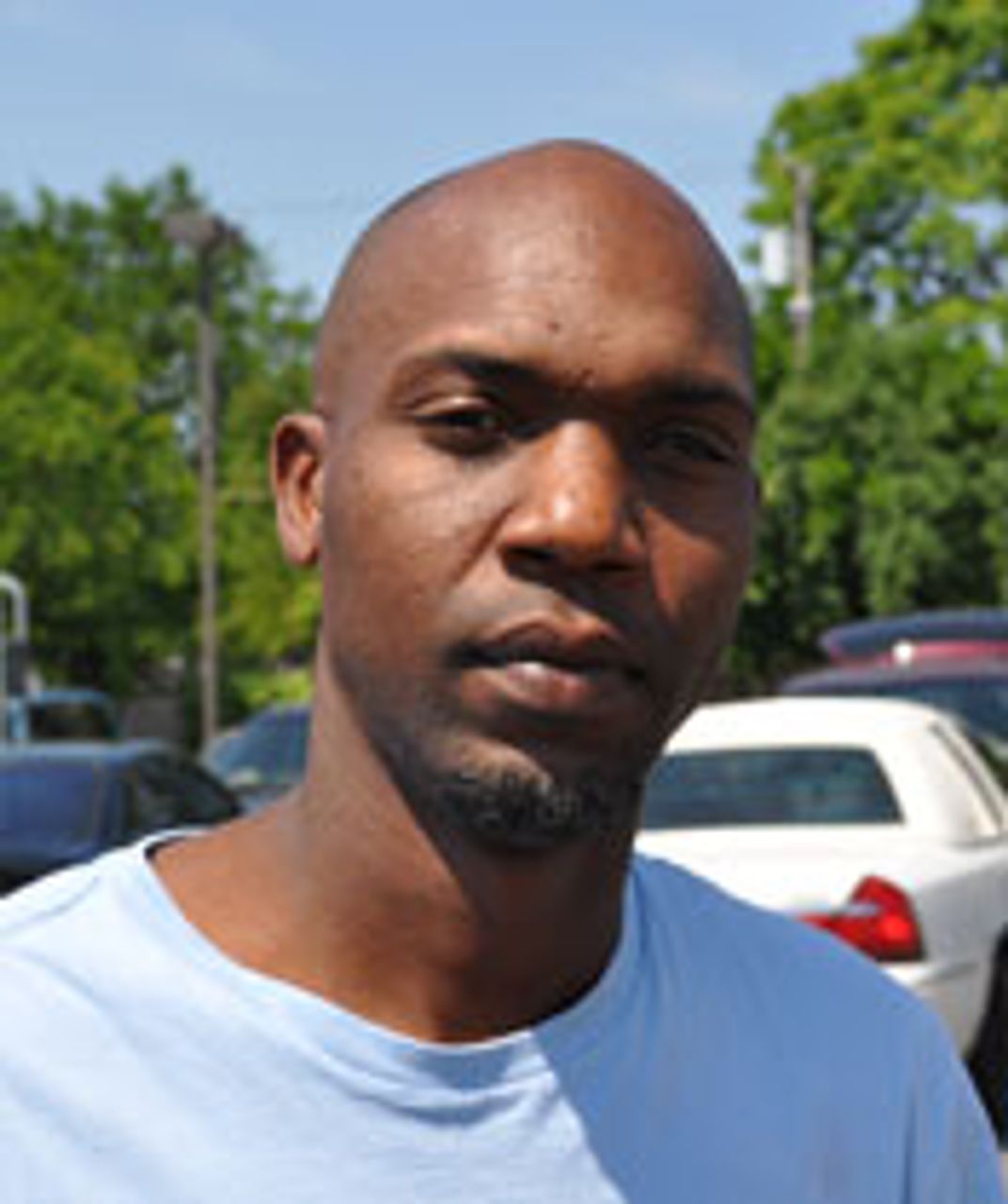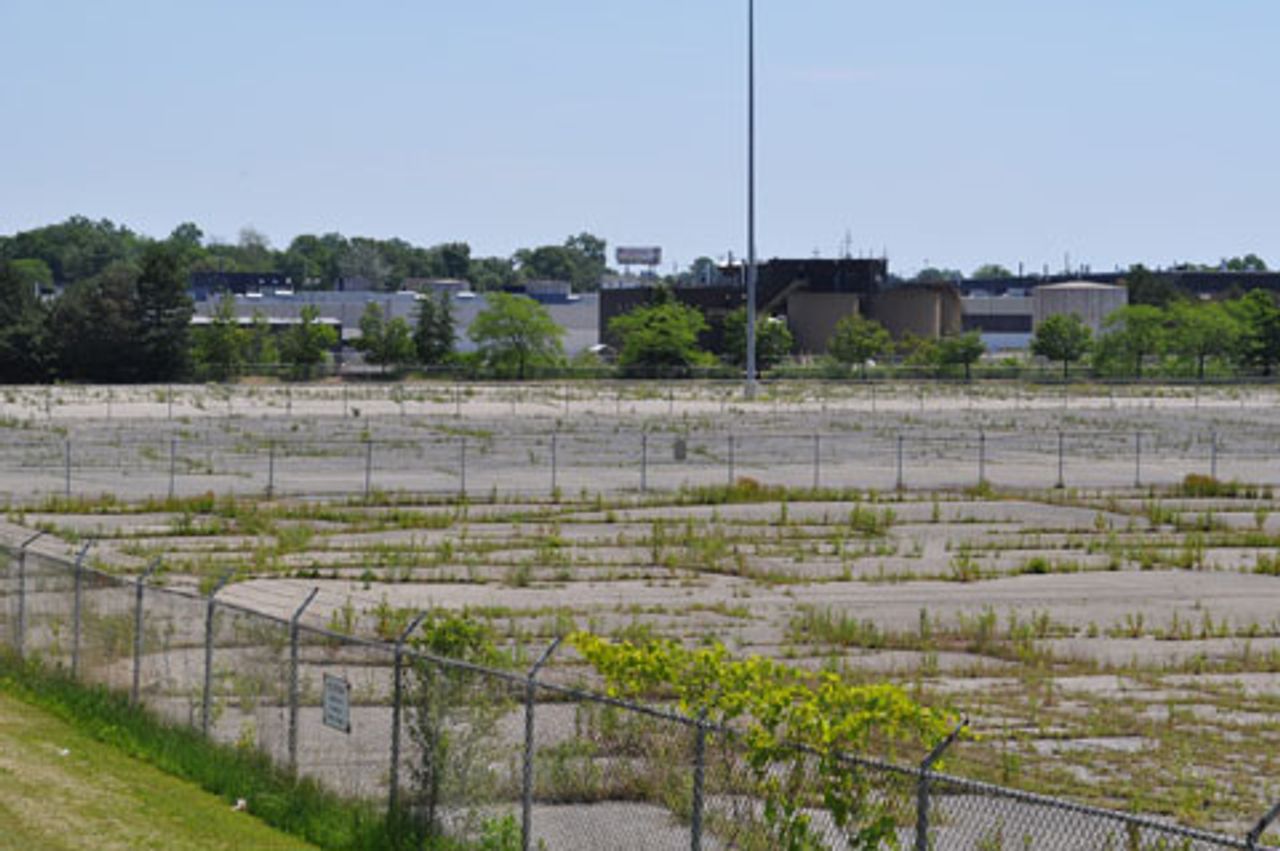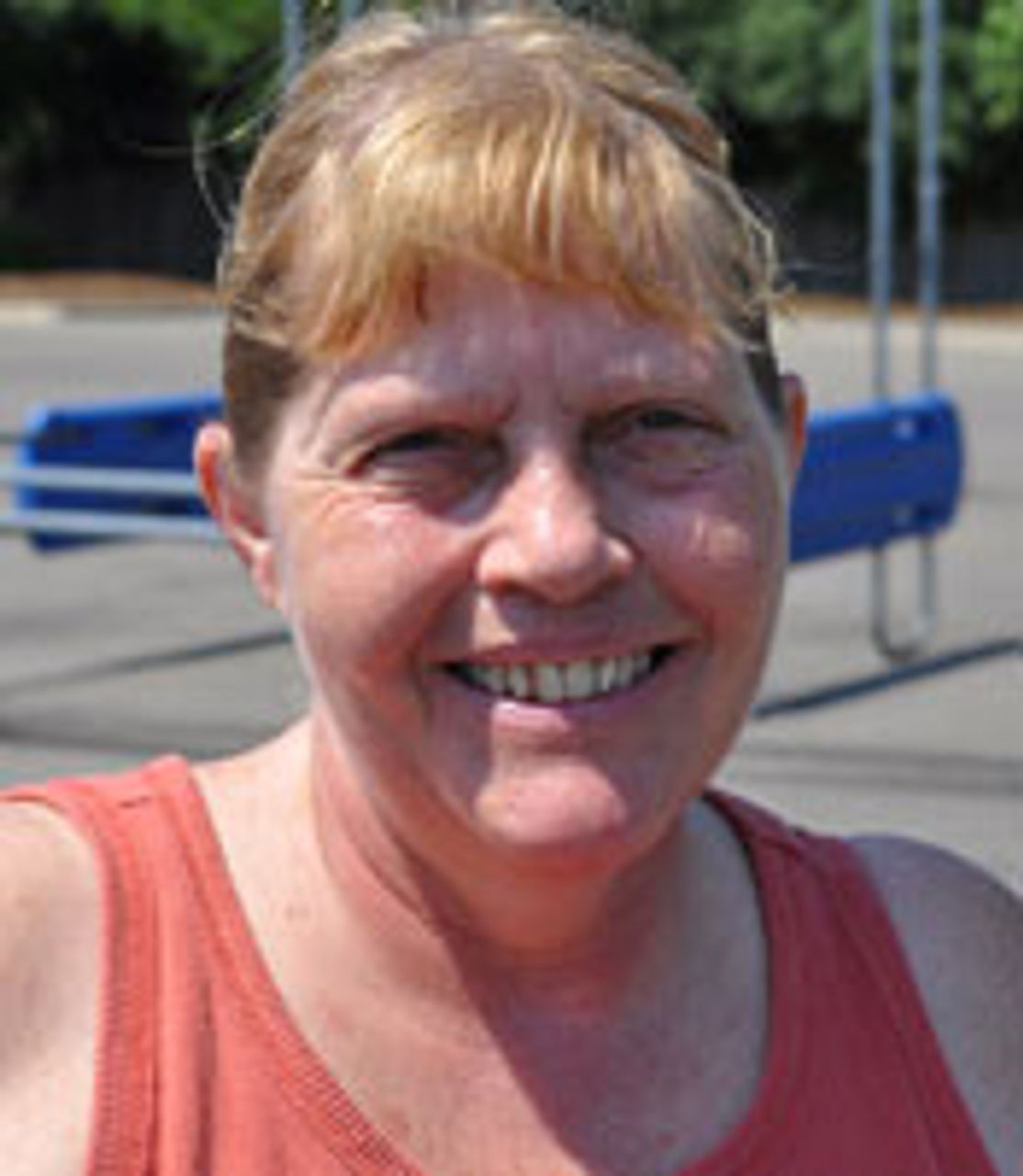Over the weekend, SEP campaigners visited a shopping center in Ypsilanti, Michigan, an industrial town just east of Ann Arbor, to talk with workers and students about the recently proposed cuts to the city’s budget and about the socialist campaign in the 2012 presidential elections.
The SEP supporters distributed leaflets on the cuts that included information on a public meeting to be held at the Ypsilanti Senior/Community Center on July 25, where Jerry White, the Socialist Equality Party’s presidential candidate, will speak.
 Scottie Williams
Scottie Williams The budget cuts would consolidate the Ypsilanti and the adjacent Willow Run school districts, reduce fire and police staffing and compromise garbage pick-up services.
Ypsilanti resident Scottie Williams, 36, works as a landscaping contractor. He described himself as politically “in the center,” and said he tries to “inform people to vote. I’m more Democratic. I voted for Obama. I don’t like the politics that goes on, pointing fingers instead of getting things done. It’s hard to create jobs. The government can’t create jobs.”
SEP campaigners explained that a socialist response to the jobs crisis would be massive reinvestment of the wealth of society into social infrastructure, to be decided upon through democratic decision by the working class. Scottie responded by saying that the problem with government jobs initiatives is that they give money to private contractors, the rich and corporations, rather than directly funding work. In his job, he said, “we’re pretty much working for the rich. They cut corners and hire illegal immigrants. But they are the same ones who are anti-immigrant. They complain about bums on the street corners—well why don’t you give them a job?”
 The former Ford-owned Visteon plant. The one-million-square-foot facility was half demolished in 2010.
The former Ford-owned Visteon plant. The one-million-square-foot facility was half demolished in 2010.According to a study referenced on the Ann Arbor Community Foundation’s web site, Ypsilanti lost more than 14,000 higher-paying manufacturing jobs between 2001 and 2010. The period between 2006 and 2008 saw the per capita income in Ypsilanti fall 19 percent, versus an average drop of 10.5 percent for the state of Michigan. In 2009, 40 percent of the foreclosures filed in Washtenaw County were in Ypsilanti or neighboring Ypsilanti Township.
Scottie continued: “The problem is that most companies that qualify for a government handout don’t use the money for anything. And smaller businesses are getting taxed and have to meet all these certifications. Like MDOT [Michigan Department of Transportation] certified inspections for our vehicles—they will ticket you if you don’t have it right.”
With two young children in the Ypsilanti school system, Scottie said he wanted to see much more investment in education. “We should have money put into education, rebuilding the roads, city services—they’ve got to pick that up. I believe in reasonable taxes. If things are getting done, I don’t have a problem with that. If my taxes are going up, and things are not getting done, or they are getting worse—like they are now—then that is not right.”
The Ypsilanti school district is one of the most financially distressed school districts in the state and has a 60 percent graduation rate, 23 percentage points lower than the rest of Washtenaw County. Alicia is a 16-year-old student at Ypsilanti High School. “We don’t have paper at school,” she said, “so we have to do all our work online. We don’t have supplies like we should. There are 30 to 40 kids per class.”
Because the district has a $9.9 million budget deficit, the school board is weighing a plan to consolidate with Ypsilanti’s eastside Willow Run School District. “They said they were going to put Willow Run in our school but I’m not sure how they’re going to do that, because our school is not very big and it’s already crowded.” After graduating, Alicia said, “I have to go to college, but I’m not sure what I want to be.”
 Sandy
Sandy Sandy, a 50-year-old Ypsilanti resident, is a special education teacher in the Willow Run school district. Special education has been a focus of recent budget cutting; last month, the Willow Run school board laid off 26 para-educators and slashed pay for the remaining aides to only $14,091 a year for the highest-paid workers.
Sandy expressed anger at Republican Governor Rick Snyder over the attack. “Snyder has made it ridiculous to hold a job in education at all, let alone one for a living wage,” she said.
On Friday, June 9, the last day of school, Sandy said that she told her classroom aide, “I hope to see you back in the fall because I’d love to have you. But I also hope you can find a job that can pay you a wage you deserve for the work you do.”
SEP campaigners explained that the policies of the Snyder administration were of a piece with the Race to the Top program of the Obama administration, which has pitted money-starved schools against one another to compete for meager funding by attacking programs and teachers. The campaigners also pointed out that the push for private charter schools is promoted by both Democrats and Republicans at all levels of government, including Obama’s Secretary of Education Arne Duncan.
Sandy was disturbed by the push to charterize and lease school buildings. Campaigners told her about the conditions in Muskegon Heights, a small industrial city on the west side of the state where the entire local school district has been converted to charters.
Sandy replied, “Muskegon Heights is hurting really bad. How does that even work? How can they do that? Charters are not an improvement—I have worked in both public and charter schools. Charters do not have a fair employment policy, they do not have good recordkeeping, they exclude children with behavioral and developmental problems in order to make their academic scores look better—which pushes those children into the public schools and concentrates the lower scores there. And the signs on the charter schools advertising free tuition? I’m sorry, but our taxes paid for it. It is not free—you just pay in a different way.”
“And the online schools that supposedly are for kids that aren’t succeeding in public schools,” Sandy said, “if those kids aren’t succeeding in a setting with a teacher, they are not going to succeed if you put them behind a computer.
“The schools here are full of very ‘at-risk’ children. Everybody is just working and working to keep food on the table. The kids are very connected to the staff at the schools.”
Campaigners asked Sandy her thoughts on the presidential election. “In the last election, I didn’t care for the choices, so I voted for an independent candidate. I didn’t want either party to get my vote,” she explained. “What’s frustrating about this election—and my parents raised me to vote, because not everyone has that freedom—is that it is going to be so hard to pick someone.” Sandy was interested in the SEP campaign, thanked campaigners and wished them luck.
Sharon, 67, of Ypsilanti, is a retired Ford worker. “I’m not going to be rude about this, but I’m not voting for Obama,” she said. “He’s not an honest man and what he’s doing is not helping the American people.” Sharon said she was concerned about threats against Social Security. “I worked 30 years to pay into that, and I retired with the idea of that being there for me. Today, Social Security is three-quarters of my income, along with my pension. I worked at Ford for 28 years.”
 Vacant UAW hall across the street from the Visteon plant
Vacant UAW hall across the street from the Visteon plant“I’m upset at the treatment of our veterans,” she said. “They went over there to protect us.” Campaigners explained that the SEP called for an immediate end to the wars, and that the US was waging criminal wars not to protect Americans but for global control. “War is horrible,” Sharon said. “Our veterans need help. They come back wounded and psychologically damaged. Why do we have to be ‘policemen’ of the world? I have been saying this for years.
“I was born in World War II, then there was the Korean War. Vietnam was an absolute shame. I’m tired of war,” she said. “My whole life has been war.”
Sharon is raising two grandchildren who are Ypsilanti public school students. “We need more schools in this day and age, because we have kids with more problems. My 13-year-old grandson has emotional problems. If you put him in a class that’s too crowded, it makes it worse.”
“I worry about my grandkids,” she added. “What will they do? I see kids with college degrees who are working at the Taco Bell.”
The SEP encourages all workers and students in the Ypsilanti area to attend the July 25 meeting at the Ypsilanti Senior/Community Center, 1015 N. Congress, at 6:30 p.m., and to get involved in the struggle to build a party of the working class capable of defending education, infrastructure, retirement and jobs that will insure a high quality of life for all.
